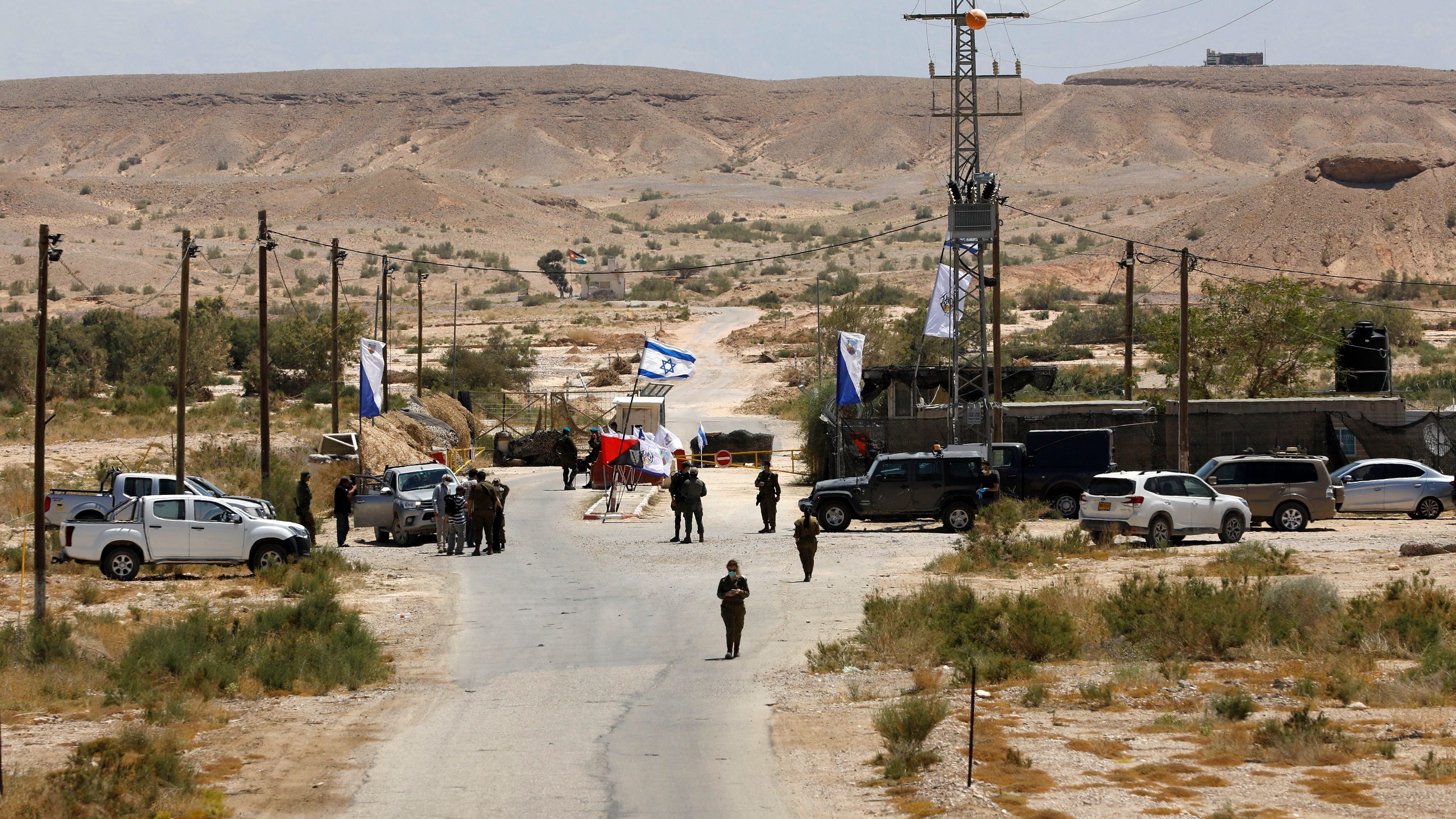Jordan Thwarted Attack on Israeli Soldiers at the Border, Newspaper Reveals
ISIS activity in kingdom no surprise, says expert
The Jordanian General Intelligence Directorate arrested an ISIS cell that planned to attack Israeli soldiers just over the countries’ common border earlier this year, the Amman-based Al Ra’i newspaper reported on Tuesday.
Three members of the cell were arrested in February, while a fourth was apprehended at the end of 2020. They were planning to attack Israeli soldiers positioned on the border, close to the southern Dead Sea. Jordanian border police were also to come under fire.
The cell members are being charged with planning to carry out terrorist attacks and promoting the ideology of a terrorist organization.
Since the Islamic State (ISIS) was driven from its territorial holdings in Syria and Iraq, the organization has lost its position at the center of global attention. And yet Yoram Schweitzer, a senior researcher Tel Aviv University’s Institute for National Security Studies and head of the institute’s Program on Terrorism and Low-Intensity Conflict, stresses that the organization has far from disappeared.
“ISIS [in its current form] is the continuation of IS, the core from which IS sprung, and after the IS lost its territory following its military defeat, what remained was ISIS, and ISIS inherited IS’s connections with its partners … who are spread around the world,” he told The Media Line.
ISIS is now active in Africa, South East Asia, Afghanistan and throughout the Arab world, the expert said. Moreover, he stressed, these worldwide operations should not be seen as the actions of disjointed cells. “It’s an organization …, [the different branches] act as organizations …, the activity is centralized, ordered, managed,” Schweitzer said.
What may be notable about this attempted attack is its Israeli target.
Oraib al-Rantawi, the founder and director of the Al Quds Center for Political Studies in Amman, told The Media Line, “In the last 10 years, when ISIS became influential and powerful in this part of the world, and they were very close to the Israeli border with Syria, we never heard of any serious attempts by ISIS to target Israelis. Israel is not … the top priority of this terrorist organization.”
Rantawi suggested instead that those apprehended were loyal to ISIS’s ideology, but this is where their affiliation ended. “ISIS is a big umbrella, and we know that many people connect themselves to ISIS while … they are not seriously connected to the organization and taking their orders, weapons, training, funding from the organization,” he said.
Schweitzer, however, thinks differently. ISIS has a set of enemies, and while it is true that Israel is not a top priority, attacking the country when the opportunity strikes “fits the agenda just fine,” he said. This is not a sign of a change in the organization’s policy, he emphasized. The planned attack would have damaged Jordan and Israel, and possibly sown discord between the security allies – all worthy achievements for the jihadi organization.
The surprising thing about jihadi activity in Jordan, Schweitzer believes, is rather that such attempts have not happened beforehand, to the best of our knowledge. The expert believes that the jihadi-Salafi ideology – to which both al-Qaida and ISIS subscribe – is very likely brewing under the surface, especially with the large number of Syrian refugees present in the country, living in difficult conditions and thus becoming prime recruiting material for the organizations.
According to a March 2021 European Commission report, more than 753,000 refugees are present in Jordan, 663,000 of them from Syria.
The events exposed on Tuesday by the Jordanian paper occurred, as mentioned above, almost six months ago, which leads one to ask: Why has the publication of these arrests waited for so long?
Talk of warming relations between Israel and Jordan has filled the headlines in recent weeks. Schweitzer suggests the publication may be connected to these developments, perhaps a sign of goodwill sent from Jordan to Israel.
Rantawi brings forward a different explanation, one focused on domestic considerations.
“Once in a while, the security [establishment] tries to remind the Jordanians that we are still under threat. We are still in [an] unsecure, unstable region, and terrorist threats still surround Jordan from the north in Syria …, Iraq, and even [from the] south in Sinai,” he said.
Delayed reporting on security matters in the kingdom is nothing out of the ordinary, Rantawi asserted, and the recent release may simply be sending a message to Jordanians that they “should care more about internal politics, internal unity, about our internal stability, [and] about our domestic security as well.”


